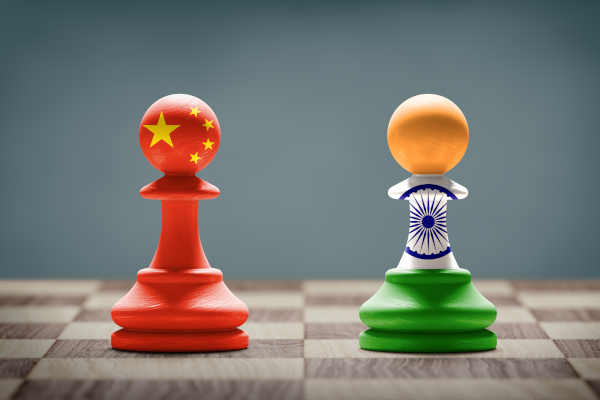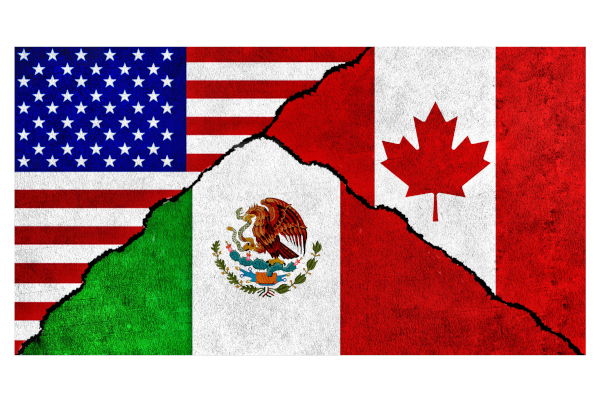6 Reasons Supply Chain Managers are Choosing India Over China for Trade
A new survey found U.S. C-Suite executives are over three times more likely to choose India over China for their future supply chain needs
Global trade patterns have been on the move for the last five years as U.S. companies continue to focus on diversifying their supply chains. Combine steep tariffs and an unprecedented pandemic with increasing climate disasters, geopolitical tensions, and greater consumer preference for sustainable and ethical practices, and it becomes clear that supply chains must continue to evolve to mitigate these higher costs and disruptions.
For many companies, this looks like moving away from a reliance on China. A recent survey by OnePoll conducted for India Index found that U.S. C-Suite executives are over three times more likely to choose India over China for their future supply chain needs. Of the 500 U.S. executives surveyed, 61% said they would consider sourcing from India if they knew India had the same materials as China.
So why India? We spoke with Samir N. Kapadia, founder and CEO of India Index, who gave us six compelling reasons companies may choose India over China for future supply chain needs.
1. Rising tariffs and costs
Tariffs placed on imports from China in 2018 have contributed significantly to a need to move American business elsewhere. With no tariff relief in sight, if you hadn’t already diversified sourcing either locally or to another country, the pandemic almost made it a necessity.
“In many respects, China is now in a bit of disfavor,” said Kapadia, adding that it’s not just about costs but concerns of forced labor, intellectual property theft, and increasing shareholder-driven campaigns to motivate companies to diversify out of China.
“If you’re an importer in the United States, and you're paying a 25% tariff, now your supplier is getting accused of forced labor, there’s constant risk on intellectual property theft…where do you land?” asked Kapadia.
2. Concerns over intellectual property theft
Intellectual property theft is another major concern for U.S. companies trading with China, especially fear of stolen technology. The Five Eyes intelligence-sharing network, made up of officials from the United States, Britain, Canada, Australia and New Zealand, recently accused China of stealing secrets across various sectors, including innovations from quantum technology and robotics to biotechnology and artificial intelligence.
OnePoll’s survey found that 54% of respondents felt that China had high risk as it relates to intellectual property, while 29% of companies thought the same of India.
3. Fear of reputational risk
While companies could once ignore a mark on their reputation due to the low cost of doing business, today’s conscious consumer is holding companies accountable like never before.
“The reputation of a company can be very much hinged upon the way they conduct supply chain,” said Kapadia. “The Fortune 500, even beyond, are now seeing that they need to operate within countries where they won't get slammed in some op-ed, or they won't get called up to some congressional hearing given their practices.”
4. Economic growth in India
As the fastest-growing economy in the world at a rate of 7.2% GDP, India is becoming an interesting alternative for global trade. With economic growth comes greater investment in infrastructure, allowing India to also fill many of the gaps that once prevented it from competing on the world stage.
“The whole purpose of India’s infrastructure growth is to provide for these companies to now come in and feel they have that support system,” said Kapadia. “We think that's very much going to be the trend over the next five years, and this sort of gap that we've seen in India will slowly kind of come to a close.”
5. The promise of aligned political landscapes
Political risk (53%) was the top concern amongst U.S. executives when it came to trading with China. Another 26% also felt it was ‘very risky’ to trade with China, compared with India at 12%.
This perceived safety in India can be attributed in part to greater political alignment between the country and the United States. Under the current administration of Prime Minister Modi, who's promoted the idea that the United States and India have never been more aligned, Kapadia said America is now taking a second look at India in a way they haven't before.
“They feel like India’s now matured; that they've kind of arrived on the global stage,” he said.
As a result, Kapadia said he expects this year to see a domino effect across sectors as everyone from the large- to small-sized enterprises considerably shift their supply chain away from China.
6. Large corporate commitments
Leading by example is exactly what companies like Tesla, Apple and Walmart have been able to do with greater investment in India over the last few years. Walmart, for example, recently pledged to import $10 billion worth of product every year from India starting in 2027, and others are likely to follow suit.
“You're going to see that incremental shift as a few of those kind of anchor companies show the world that it can be a successful way…to do all the things that China's done well for a very long time and to bring them to India,” said Kapadia.
Article Topics
India Index News & Resources
6 Reasons Supply Chain Managers are Choosing India Over China for TradeLatest in Supply Chain
Is the Trailers as a Service (TaaS) Model Right For Your Business? Why Grocery Shoppers are Leaving Stores and Buying Their Food Online Is There a Next Generation of Truckers? Data Reveals Grim Outlook A Look at Baltimore’s Key Bridge Collapse—One Month Later European Parliament Passes Law on Supply Chain Accountability Baltimore Continues Bridge Recovery With Opening of New Channel How Shippers Can Prep for Hurricane Season More Supply ChainAbout the Author













